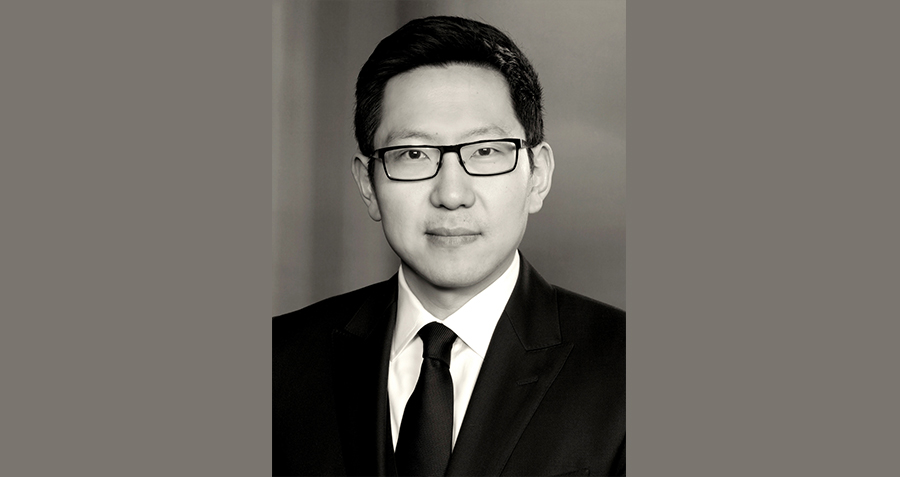Sustainability and ESG are growing concerns for businesses across the world, but how the issues are prioritized and approached by different businesses and regions varies widely. Many of China’s ESG-related goals focus on the environment, and in particular, the country’s drive for decarbonization, highlighted by the dual carbon goals, and that is where many companies are focusing their efforts. The business case for sustainability is becoming increasingly clear, but for many there is either a lack of knowledge on the subject or no real buy-in, which is slowing progress.
In this interview, Siyao Jiang, China Managing Partner at global sustainability consultancy firm ERM, discusses the concepts of ESG and sustainability, the regulatory requirements put in place by different governments, organizations and market regulators, and the subsequent challenges and opportunities for companies looking to operate sustainably in the international market.
Q. What is the level of awareness in Chinese companies regarding sustainability and how does this vary between purely domestic or more international companies?
A. For Chinese entities there is a very wide spectrum in terms of sustainability or ESG awareness. On one end are those entities purely focused on the domestic economy, which are at rather early stages of their sustainability journey, whose understanding of ESG stays in the form of reports produced to satisfy stakeholders, but lacks substantive matters. On the other end of the spectrum, Chinese companies that are involved in the new economy, both domestic and international, take it much more seriously because they face increased pressure from capital markets or consumers, and often from both.
Q. To what degree have ESG or sustainability requirements for operating a business in China changed in recent years, and how does this compare to international requirements?
A. There is a set of international standards which most companies have to follow, but there are also country-agnostic elements. For instance, environmental regulation will vary from country to country, with China’s actually being quite stringent. Whilst the ‘E’ element of ESG is more measurable and quantifiable, the other ‘S’ and ‘G’ elements tend to be more ambiguous, despite the fact that social and governance considerations can have a substantial long-term impact. If you don’t do them well, in the right places and at the right times, they are very hard to remedy at a later stage. This is actually why ERM employs social experts such as sociologists, archaeologists and anthropologists to help deal with different issues for companies.
The other observation of country-agnostic sustainability elements is a convergence of international standards, such as the recently released ISSB (International Sustainability Standard Board) that would become part of the IFRS (International Financial Reporting Standards) accounting standards. One of the most noticeable features of the ISSB is the incorporation of climate change and nature-based solutions, in the form of TCFD (Taskforce on Climate-related Financial Disclosures) and TNFD (Taskforce on Nature-related Financial Disclosure) disclosures.
Q. While environmental issues are easy to comprehend, how would you explain the factors that make up social and governance issues?
A. It’s quite a wide-ranging issue, but can also be very industry-specific. To start with, governance, if you talk about tech companies such as data centers, then data privacy is a very important governance topic. And, of course, for the company, corporate governance, the separation of the board and management, remuneration, audits and risk management, among other issues, are all relevant to the G in ESG. That being said, exactly how these manifest themselves is very industry-specific.
In terms of the social issues, there are a few common topics that most companies face which I would say are the bottom line in terms of social compliance. One is labor conditions and human capital development, which is why companies have HR departments. The other is safety, for which there are any number of regulations and company policies in place.
There are also the topline considerations, which include the more active social impact-driven approaches or business areas such as redevelopment, microfinance or poverty reduction. Another big social issue is resettlement. For instance, if you want to build a road you might have to move a few houses away from their original positions, and for this, many of the international commercial banks and multinational development banks have rules, called the Equator Principles, regarding how this should be approached and compensated for.
Q. What are the common ESG-related barriers faced by companies looking to enter a new market, both for Chinese companies looking outwards and foreign companies looking to working in China?
A. The first challenge is getting genuine buy-in to the concepts. We have worked with companies that only want to do the bare minimum, to tick the box, but we have also worked with clients who have a strong internal motivation and organic drive to do things right. And that makes a huge difference.
The second challenge is the country-to-country difference. You have international regulation on top, but also country-specific requirements, which require local experts from various fields to help you understand the key differences.
A third challenge is within particular companies, and it is similar to any kind of organizational behavior change. If you only adopt a top-down approach, from the senior leaders, it is very hard to penetrate downwards. The change needs to go both ways, top-down and bottom-up. And the only way to have an effective bottom-up mechanism is to put in place a well-designed compensation incentive system, or KPI-driven system, which allows day-to-day operators to really see the benefits, financially or otherwise.
Also, ESG is something of a buzzword and actually covers a really broad range of things. Environment and social issues can relate to pretty much anything, which makes it an easy concept to comprehend, but difficult to implement at an operational level.
As such, ERM advises international corporations on compliance with EHS (environmental, health and safety) regulations in China and helps Chinese clients comply with host country regulations for their outbound investments. In addition, we assist Chinese clients to understand and align with international ESG frameworks, for example, to access international capital markets and customers.
Q. How are the ESG and sustainability requirements of financial markets changing in China?
A. Hong Kong is definitely a spearhead in the Greater China region. The Hong Kong Exchange has eight environmentally-related standards and four that are socially-related, as well as some governance standards. Also, the Hong Kong Exchange has implemented mandatory climate-related financial disclosure requirements that will come into force from 2025, where companies will need to disclose both physical risk and transition risk. Physical risk is basically how much money you will lose if your asset becomes stranded because of a natural disaster. Transition risk is similar, but it is the risk and the opportunities driven by policy changes during a shift toward a low-carbon and more climate-friendly future. Listed companies will need to start quantifying both of these for investors. The Singapore and European markets are also very stringent in these areas. Whilst the mandatory ESG disclosure requirement in the Shanghai and Shenzhen stock exchanges appear to be less stringent compared to their offshore counterparts, they are picking up and it won’t take long for companies listed in Mainland China to fulfill a similar set of disclosure requirements.
We have also worked extensively with major equity investors (in the forms of PE, VC and infrastructure funds) and debt investors (in the forms of commercial and investment banks, multilateral development banks, and export credit agencies). Both debt and equity investors have put significant emphasis on ESG due diligence pre-investment and ESG performance monitoring and value creation through ESG improvements post-investment.
Q. How do you put forward the business case for sustainability?
A. Different companies are at different stages of maturity in their ESG journey, so we won’t force people or companies to make choices unless they feel that it’s the right thing to do, so education can go a long way here.
For us as a business, the market is big enough, so if someone only wants to do an ESG report there are lots of local companies or competitors who can do a report at a much cheaper price. But if you really want to tackle the hardcore, then we help with painting a picture of the problem and showing them different pathways forward. We can show them what is likely to happen over the next five to 10 years, depending on the decisions made and show them the cost benefit analysis of various investments in different areas over different time periods.
This is reflected in the approach we take when trying to operationalize sustainability. Our motto is ‘Boots to Boardroom,’ meaning that whilst we pursue first-hand project-level experience delivered in a bottom-up approach, we could simultaneously conduct a top-down strategy approach to embed ESG into all key functions of business operation and leverage organizational behavior changes in strategy, marketing, human resources, R&D and finance.
Q. How do you see the overall trends in ESG in China changing in the coming years?
A. If you read the speech made by President Xi Jinping at the 20th Party Congress in 2022, he used nearly 60 environment-related words including environment, carbon and ecological conservation, over 90 social-related words including rural, education and health, and many governance-related words such as anti-corruption. Of course, in the Chinese context there is a different emphasis on ESG, so much of the environmental discussion was centered on decarbonization, while the social-related topics emphasized the rural economy, redevelopment and poverty reduction. Anti-corruption was the main focus in terms of governance.
There are also echoes here of ancient Chinese and Taoist philosophy, and the ideas that everyone should be able to find and live a decent life. This is an ESG-related topic and also, I think, universal. In Europe, there are many ways to trace back ESG development through Christian principles, for example.
ESG is one of the rare topics that it doesn’t matter where you are from, it is a fundamental value that we all agree upon to some degree or level of intensity. And I think Chinese companies are currently on a ESG-conversion journey. There are different levels of buy-in, but if a compelling business case can be made for it, with relatively controllable costs and benefits that outweigh those costs, any business will make the choice to undertake some form of positive impact.
Interview by Patrick Body




















